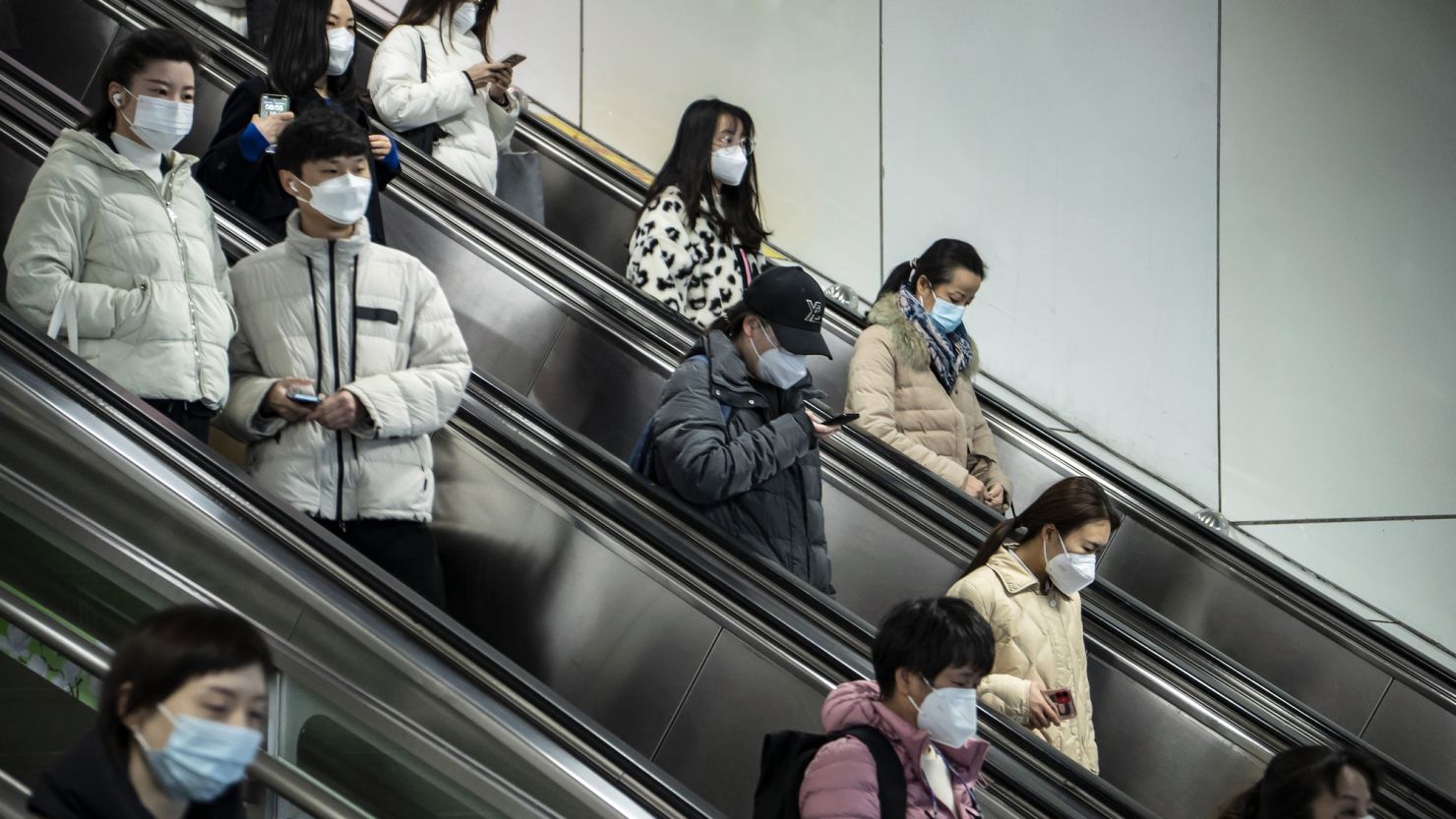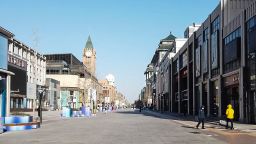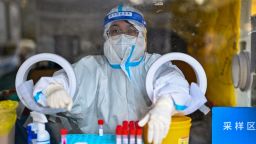A version of this story appeared in CNN’s Meanwhile in China newsletter, a three-times-a-week update exploring what you need to know about the country’s rise and how it impacts the world. Sign up here.
Just weeks ago, catching Covid in China meant being taken to government quarantine for an indeterminate stay and your entire residential building being locked down, trapping neighbors in their homes for days or weeks.
Now, as the country rapidly relaxes restrictions, millions of people have been told to keep going to work — even if they’re infected.
The cities of Wuhu, Chongqing and Guiyang, and the province of Zhejiang, collectively home to more than 100 million people, all recently issued directives to public sector employees indicating a shift from preventing infection to allowing the resumption of life and work.
Asymptomatic and mildly ill workers can “go to work normally after taking protective measures as necessary for their health status and job requirements,” said the Chongqing and Wuhu authorities in similar statements posted on their municipal government websites.
Zhejiang provincial and health leaders gave similar instructions at a news conference Sunday, with one official suggesting key teams consider a rotation schedule “to ensure uninterrupted work and maintain order when outbreaks are severe.” Guiyang followed suit on Tuesday, according to state media.
The push to return to work comes as China relaxes rules around testing, quarantine and other pandemic policies, in a dramatic step away from its costly zero-Covid policy.
For three years,its stringent approach has kept Covid cases and deaths relatively low in the country. But it has also wreaked havoc on the economy and people’s mental health.
An incessant cycle of outbreaks and lockdowns has coincided with record youth unemployment, disruptions to supply chains and a cratering of the real estate sector that accounts for about 30% of China’s GDP.
Meanwhile, scenes of chaos emerged from mass lockdowns in cities like Shanghai, with residents reportedly unable to access food, basic supplies and even emergency medical care — sowing deep resentment toward the authorities and, in November, a wave of rare public protest.
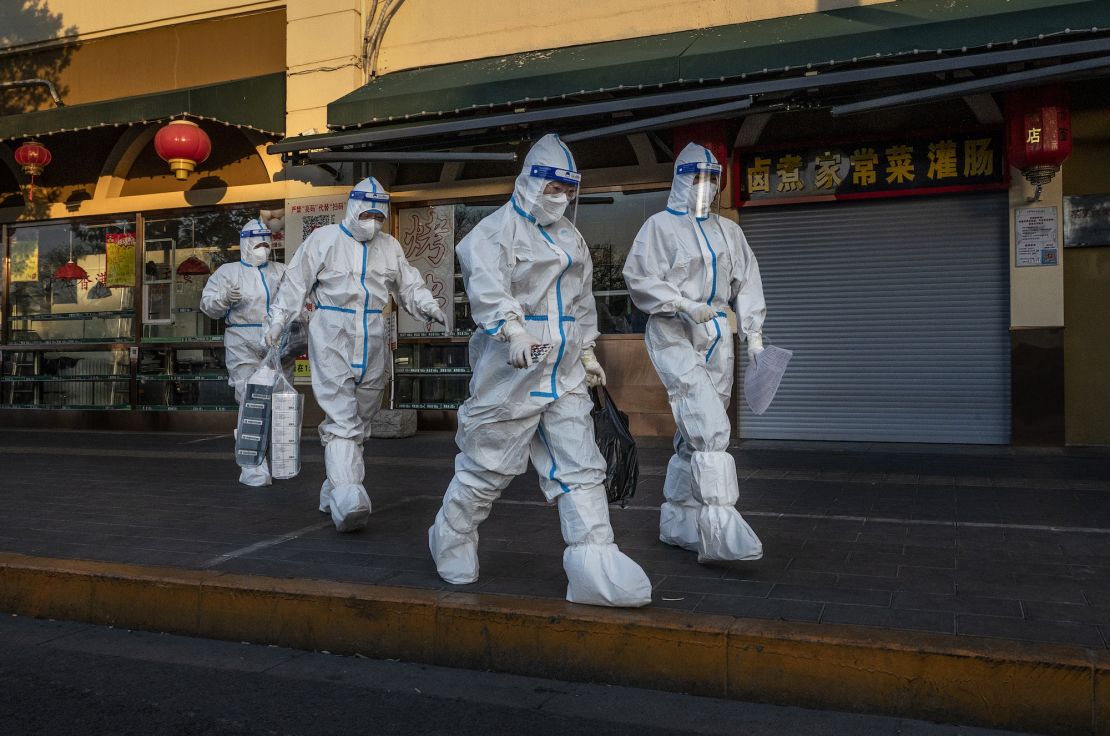
The central government’s decision earlier this month to step away from zero-Covid will undoubtedly bring relief to the struggling economy and frustrated residents. But the abrupt U-turn was seemingly carried out with little advance warning or preparation, causing a sense of whiplash and confusion among many.
“A few months ago if you went out like this, you would be sentenced,” one person commented on Weibo, China’s version of Twitter, under the back-to-work announcement.
Bonnie Wang, a fintech worker in Zhejiang’s industrial hub of Ningbo, told CNN that a colleague with Covid symptoms continued to work in the office this week with a fever.
“I hope when we encounter situations like this, our health will still come first, and work comes second,” she said.
Shift in priorities
During the pandemic, local governments essentially had a “get-out-of-jail-free card” on their economic performance, said Ryan Manuel, founder of Bilby, a Hong Kong-based company that uses artificial intelligence to analyze Chinese policy.
“Your adherence to the central Covid policy is what mattered,” he said. “Economic growth numbers, all these different things you’re measured on, they’re reduced to — ‘We don’t have a Covid outbreak, everything’s OK.’”
But, he added, the central government’s approach has changed to: “We’re not going to give you that leeway … we’re going to judge you on growth again.”
This shift in priority is clearly reflected in the government’s messaging, with Chinese experts and state media downplaying the severity of Omicron and instead emphasizing the importance of economic recovery.
Top leaders at the Central Economic Work Conference, a key annual meeting that ended Friday, said in a statement that stabilizing economic growth was the top priority for 2023. They also signaled that policymakers would relax their grip on the country’s private sector — a departure from the regulatory crackdown that in recent years has thrown China’s biggest private companies into chaos.
And though the economy has been struggling for several years, Manuel said China’s leaders may now feel more secure in adjusting their policy after the closely-watched Communist Party Congress in October.
Officials nationwide had worked frantically to contain Covid cases ahead of the highly sensitive twice-a-decade leadership reshuffle, which saw Chinese leader Xi Jinping emerge more powerful than ever into his third term.
“You’re not going to take a risk before the Party Congress,” Manuel said. “But once the Party Congress ends, you don’t have that restraint.”
As cases rise, so does fear
But this push for economic growth comes at a cost, one already making itself clear as cases skyrocket across the country, with widespread medicine shortages and reports of crematoriums struggling to keep up.
Under the current conditions, a nationwide reopening could result in nearly a million deaths, according to a CNN calculation based on a study released last week by professors at the University of Hong Kong. The paper, which has yet to undergo peer review, added that the surge in infections would “likely overload many local health systems across the country.”
It’s difficult to gauge the extent of the virus’ spread, given the rapid shift from mandatory testing to self-testing at home. Complicating matters is the fact that many restrictions and rules around returning to work diverge at the local level.
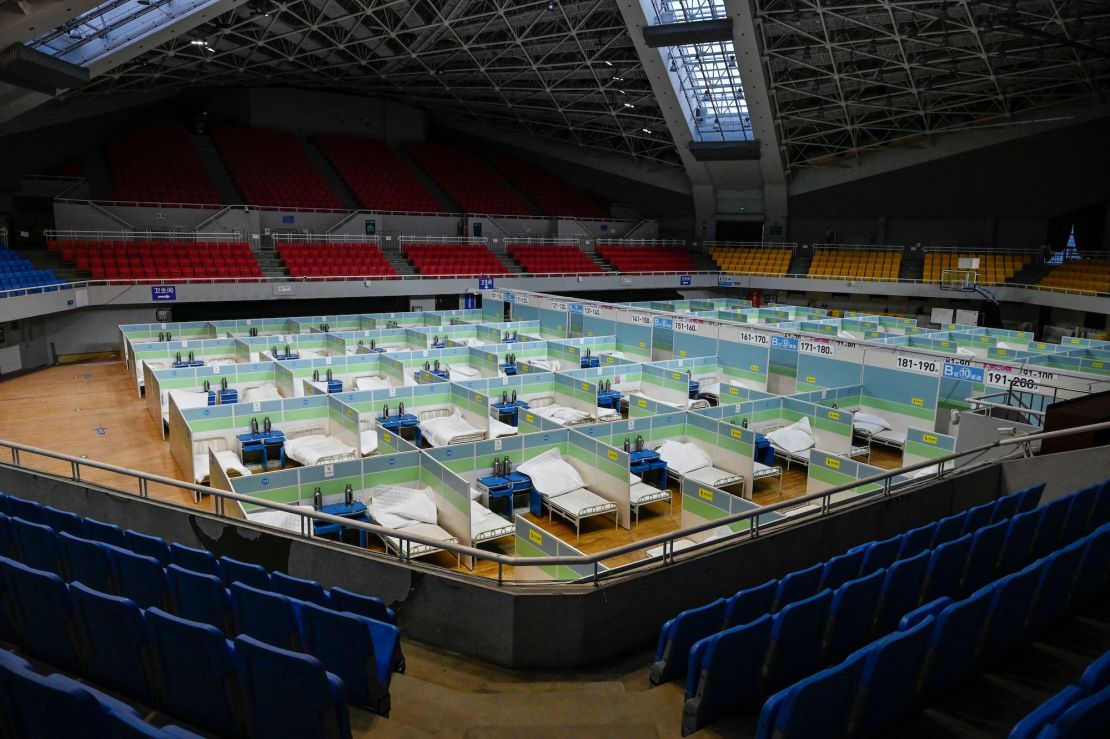
Wang, the worker in Ningbo, told CNN that a former colleague didn’t receive any support from his superiors after falling sick recently.
“Do you know what’s the first thing the company sent him? It was his work laptop. It’s outrageous,” she said, adding that though she understood the need for business to continue, “maybe because I am a worker, I empathize most with the workers.”
As fears spread over the looming wave of cases, subway systems and streets have emptied in recent weeks, which is unusual for this time of year, given China does not celebrate Christmas and most businesses are still open.
The capital Beijing, now experiencing its worst outbreak since the start of the pandemic, saw only 2.21 million subway passengers on Monday, the metro said in a post online — more than 58% lower than the average daily weekday ridership from early October to early December. Similar drops were reported in other major cities, including Shanghai and Guangzhou.
This sense of anxiety was reflected online, with many people reacting with alarm to the new directives.
“I feel that the local government that introduced this policy is extremely irresponsible,” read a top post on Weibo, where a related hashtag was viewed more than 240 million times on Tuesday. “Asymptomatic and mildly ill patients can still be contagious … and many people have elderly relatives and children at home.”
Some took a more cynical tone, criticizing the decision as prioritizing the economy at the expense of workers’ wellbeing, and demanding that their superiors be held to the same expectation.
“In other words, if you get sick, you will either need to ask for leave and deduct your wages, or continue to work,” one Weibo user wrote.
Another remarked: “It sounds like placing money over life.”
With reporting by CNN’s Philip Wang and Teele Rebane.

